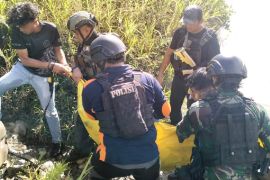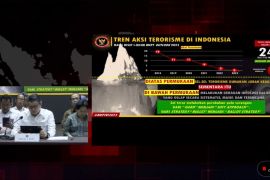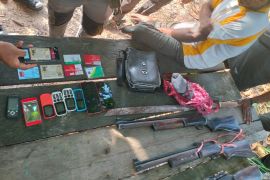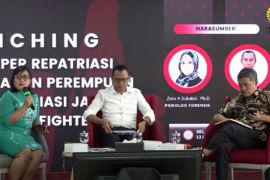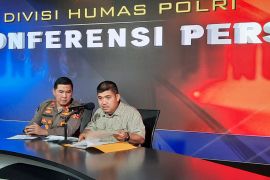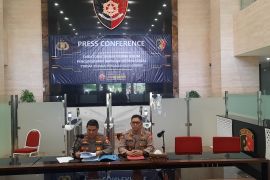There are tens of sites used for a campaign by radical groups in Southeast Asia and eighty to ninety percent of their visitors are found to be Indonesian,"Nusa Dua, Bali (ANTARA News) - Indonesia`s national anti-terrorism agency (BNPT) chief said many Indonesians visit radical sites in Southeast Asia and risk being influenced by radical ideologies.
Ansyaad Mbai, the BNPT chief, after the closing of a seminar on de-radicalization and its contribution to world peace and tolerance here on Friday said Indonesian nationals comprise 80 to 90 percent of the sites` visitors.
"There are tens of sites used for a campaign by radical groups in Southeast Asia and eighty to ninety percent of their visitors are found to be Indonesian," he said.
He said many parties are still not aware of the fact but in view of the figure Mbai said the issue needed to be given attention.
Mbai said the radical groups had been transparent and demonstrative "as could be seen in several of their sites everyday."
He said one of the efforts to overcome terrorism is de-radicalization and Indonesia has long done it.
Mbai said de-radicalization targets three parties namely firstly the terrorists or real militants whose ideology is exclusively for violence and killing enemies.
The second one is those who have finished their prison term and returned to the community as common citizens. "For these people de-radicalization is needed," he said.
The third one meanwhile is appealing the people not to be influenced by radical groups` campaign and propaganda. "De-radicalization is needed for them so that they will understand and not be carried away," he said.
Mbai said the efforts are not supposed to be taken only by the government but by all parties. "BNPT is established not for conducting it by itself but only for facilitating it," he said.
He said among those that could play a significant role in the efforts are religious and religious organization leaders. "This has now been working," he said.
Mbai said religious and religious organization figures have responded positively to the program. "From the beginning clerics and mass organization leaders have often spoken to me, asking why the government has not used them," he said.
Based upon the results of seminars he said de-radicalization program has become a global tendency because all countries now understand that physical efforts such as arrests, law enforcement and even war will not settle the problem.
He said the war method has even been considered as having only increased radicalization. So all parties have now been aware that physical efforts are not the only solution for overcoming terrorism.
The seminar from September 8 to 9 was attended by more than 200 participants from 20 countries such as government institutions, non-governmental organizations, academics, counter-terrorism institutions, ambassadors or embassy officials. (*)
Editor: Aditia Maruli Radja
Copyright © ANTARA 2011
